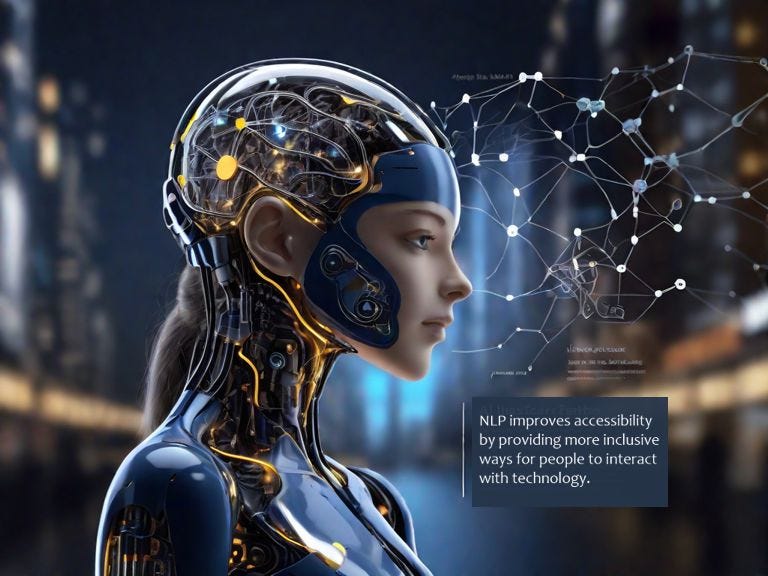
Transforming User Experiences: The Role of Natural Language Processing in Business Applications
In the ever-evolving landscape of technology, Natural Language Processing (NLP) stands out as a transformative force, revolutionizing how businesses interact with users and extract valuable insights from textual data. From chatbots and virtual assistants to sentiment analysis and language translation, NLP has become a cornerstone in enhancing user experiences within business applications. In this blog post, we’ll delve into the profound impact of NLP and explore how it plays a pivotal role in elevating user experiences across diverse business applications.
1. Understanding Natural Language Processing: Decoding Human Communication:
Begin by unraveling the essence of Natural Language Processing. NLP is a branch of artificial intelligence that enables machines to understand, interpret, and generate human-like text. This ability to comprehend and respond to natural language opens up a myriad of possibilities for business applications.
2. Chatbots and Virtual Assistants: Elevating Customer Interaction:
Explore the integration of chatbots and virtual assistants powered by NLP in business applications. These intelligent interfaces facilitate natural conversations, offering real-time support, answering queries, and guiding users through various processes, ultimately enhancing customer satisfaction.
3. Sentiment Analysis: Harnessing Emotional Insights:
Uncover the significance of sentiment analysis, a powerful NLP application. Businesses can leverage sentiment analysis to gauge user opinions, sentiments, and feedback. By understanding user emotions, organizations can make data-driven decisions, improve products or services, and tailor their strategies accordingly.
4. Language Translation: Bridging Global Communication Gaps:
Delve into the impact of NLP-driven language translation in breaking down language barriers. Businesses operating on a global scale can provide content in multiple languages, reaching a broader audience and fostering international collaboration.
5. Text Summarization: Distilling Information for Efficiency:
Explore how NLP is employed for text summarization, condensing lengthy content into concise summaries. This application enhances efficiency by providing users with quick access to key information, making content consumption more accessible and time-effective.
6. Named Entity Recognition: Extracting Actionable Insights:
Understand the role of Named Entity Recognition (NER) in extracting valuable information from unstructured text. NER identifies and categorizes entities such as names, locations, and dates, enabling businesses to derive actionable insights from large volumes of textual data.
7. Enhanced Search Capabilities: Improving Information Retrieval:
Investigate how NLP enhances search capabilities within business applications. Through semantic search and understanding user queries, NLP-powered search engines deliver more accurate and relevant results, optimizing the user experience and facilitating efficient information retrieval.
8. Voice Command Integration: Redefining User Interaction:
Examine the integration of voice command capabilities powered by NLP. Voice-enabled interactions within business applications offer hands-free operation, accessibility enhancements, and a personalized user experience, catering to a diverse range of users.
9. Customization and Personalization: Tailoring Experiences with NLP Insights:
Explore how NLP insights contribute to personalized user experiences. By understanding user preferences, behaviors, and intents, businesses can customize recommendations, content, and interactions, fostering user engagement and loyalty.
10. Ethical Considerations and Data Privacy: Navigating Challenges Responsibly:
Conclude by emphasizing the importance of ethical considerations in deploying NLP within business applications. Addressing concerns related to data privacy, bias, and transparency ensures responsible and inclusive implementation of NLP technologies.
Conclusion:
The integration of Natural Language Processing in business applications marks a paradigm shift in user experiences. From understanding and responding to natural language to extracting actionable insights from textual data, NLP empowers businesses to create more intuitive, efficient, and personalized interactions with users. As organizations continue to harness the potential of NLP, responsible deployment and ethical considerations will play a pivotal role in shaping a future where user experiences are seamlessly enriched by the power of natural language understanding.





































